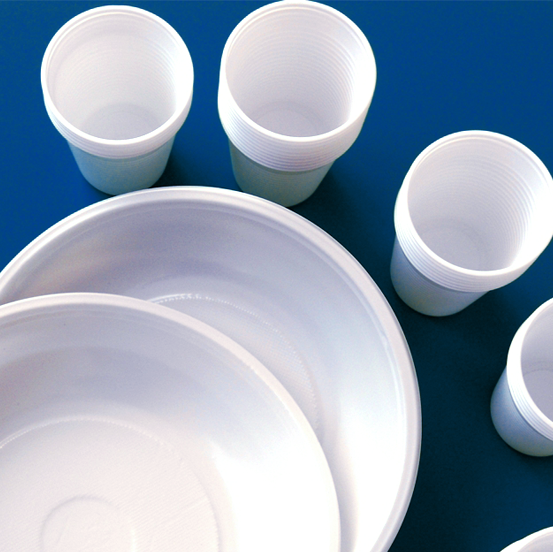Calcium Carbonate for Sheet
Calcium Carbonate (CaCO3) produced by Ultra Limited for Industrial Development is a highly versatile mineral filler widely used in the plastics industry, particularly in rigid packaging, where its utilization has grown significantly over the years. Once considered merely a resin extender, Ultra Limited’s calcium carbonate has proven to enhance performance, improve processing, and support sustainability in finished products. Studies have shown that adding calcium carbonate to polypropylene sheets improves key properties such as heat deflection temperature, impact strength, stiffness, barrier characteristics, and print quality, even at an 18% loading. At higher loading levels, up to 40%, even greater enhancements are observed, with improved part functionality remaining intact. Its inclusion in polypropylene sheets also optimizes thermoforming applications by enabling faster heating and cooling cycles, thanks to improved thermal conductivity. This results in energy savings, higher output rates, faster conversion, and reduced shrinkage, leading to greater predictability and reduced warping in final products.
Incorporating Ultra Limited’s calcium carbonate offers significant economic advantages by stabilizing costs amid resin market fluctuations. By replacing up to 40% of resin with calcium carbonate, manufacturers achieve substantial material cost savings. The additional productivity gains and higher operating efficiencies further enhance profitability. Furthermore, calcium carbonate-filled polypropylene contributes to sustainability by reducing the environmental impact of plastics. Research shows that a 40% calcium carbonate-filled polypropylene can lower greenhouse gas emissions by approximately 23%, while the improved processing efficiencies further enhance its eco-friendly appeal. Its FDA approval also ensures its versatility, making it suitable for critical applications such as food packaging, food service products, and medical packaging. Ultra Limited’s calcium carbonate combines performance, economic benefits, and sustainability, making it an invaluable component in modern plastics manufacturing.



